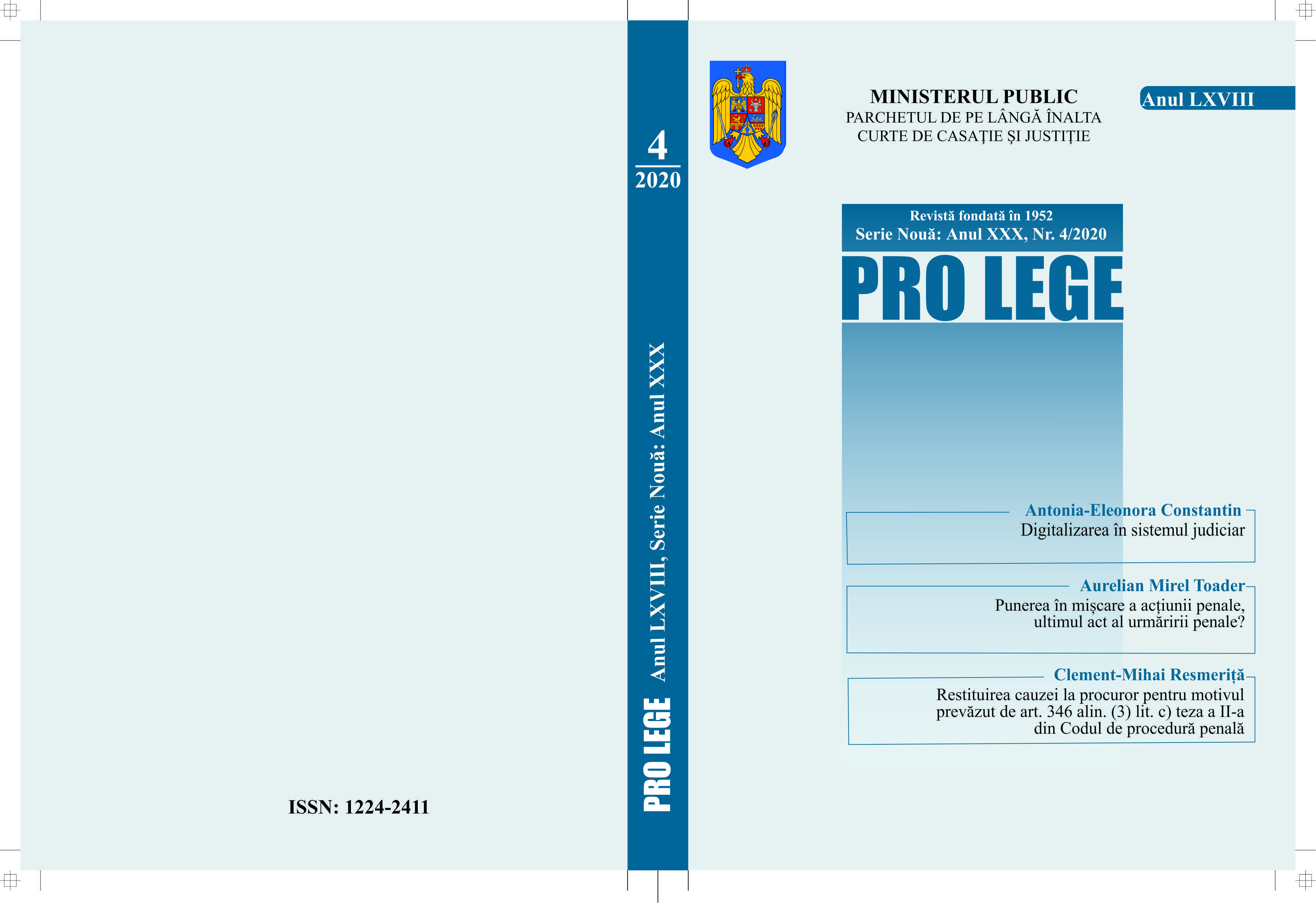Echipele comune de anchetă
Joint investigation teams
Author(s): Nadia ZlateSubject(s): Law, Constitution, Jurisprudence, Civil Law
Published by: Universul Juridic
Keywords: acquis communautaire; area of freedom; security and justice; judicial cooperation in criminal matters; joint investigation teams;
Summary/Abstract: One of the objectives of the European Union, as set out in the Maastricht Treaty, was to establish an area of freedom, security and justice for the peoples of the European Union. In this respect, one of the three pillars of the European Union has been police and judicial cooperation in criminal matters and home affairs, together with the European Communities (pillar I) and the common foreign and security policy (pillar II). The Lisbon Treaty abandons the structure of the three pillars of the Community, introducing the issues of "area of freedom, security and justice" into the European Union's internal action. In the context of the intensification of cross-border crime, given the new conditions for the movement of persons within the European Union, in particular serious crime such as trafficking in human beings, arms trafficking, terrorism, the common interest of the Member States of the European Union has been to ensure that mutual legal assistance between Member States is provided in an efficient, prompt and compatible manner with fundamental principles of national law and respect for individual rights and the principles of the European Convention for the Protection of Human Rights and Fundamental Freedoms, signed in Rome on 4 November 1950. Joint investigation teams are a modern and flexible instrument for judicial cooperation in criminal matters to support investigations into cross-border crime, based on the principles of mutual trust and loyal cooperation between judicial authorities, especially those in the Member States of the European Union. Once established, joint investigation teams provide a legal framework that allows real-time cooperation between participating competent authorities and facilitates urgent operations, such as: supervised deliveries, simultaneous and coordinated operations, and the investigation of major international incidents.
Journal: Revista Pro Lege
- Issue Year: 2020
- Issue No: 4
- Page Range: 110-126
- Page Count: 17
- Language: Romanian

